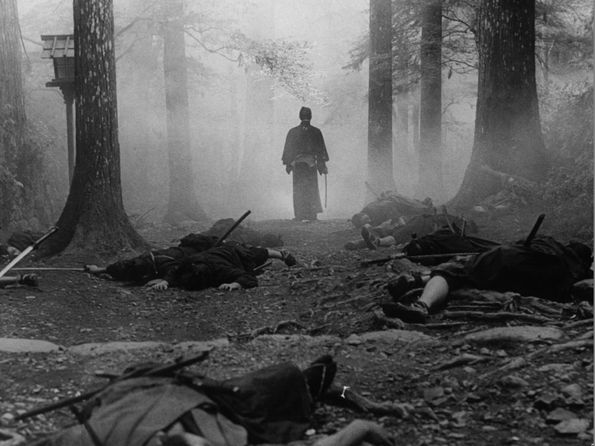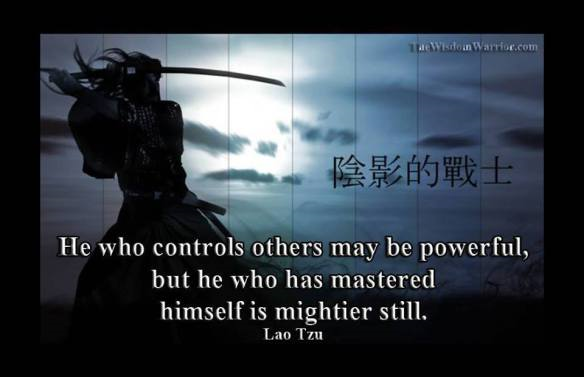|
'There is nothing outside of yourself that can ever enable you to get better, stronger, richer, quicker or smarter. Everything is within. Everything exists. Seek nothing outside of yourself.' ~ Miyamoto Musashi, 1584-1645 A Book of Five Rings: The Classic Guide to Strategy. One of the greatest lessons in life is that others have already trodden the narrow pathway to conquering their own lives. In fact their fortitude, mind-set and resilience leaves our comfy 21st Century lives look embarrassingly soft in comparison. Your task then is to simply search for those who inspire you and then determine if their principles and systems can be applied, moulded and refined within your life. Sounds simple, right? And if it were that simple why are there still so many disillusioned and frustrated people out there searching for the 'holy grail' of happiness? The answer in three words... lack of discipline. That's all it is. The need to discipline your mind, body & spirit. Without it you will simply drown in the endless drivel and distractions of life and the media's ceaseless desire to entertain us and extract our hard earned money. I know I sound a little sceptical, but as I've mentioned before, when you reach the ripe old age of fifty you see the same cycles of life repeating themselves, and I'm hell bent on preventing you making the same mistakes I had made. To illustrate my point, the 21 Principles of Miyamoto Musashi, the Buddhist and Japanese master swordsman, written on his deathbed in 1645 are still as relevant today. Especially if you wish to become the conqueror of your world. 1. Accept everything just the way it is. 2. Do not seek pleasure for its own sake. 3. Do not, under any circumstances, depend on a partial feeling. 4. Think lightly of yourself and deeply of the world. 5. Be detached from desire your whole life long. 6. Do not regret what you have done. 7. Never be jealous. 8. Never let yourself be saddened by a separation. 9. Resentment and complaint are appropriate neither for oneself nor others. 10. Do not let yourself be guided by the feeling of lust or love. 11. In all things have no preferences. 12. Be indifferent to where you live. 13. Do not pursue the taste of good food. 14. Do not hold on to possessions you no longer need. 15. Do not act following customary beliefs. 16. Do not collect weapons or practice with weapons beyond what is useful. 17. Do not fear death. 18. Do not seek to possess either goods or fiefs for your old age. 19. Respect Buddha and the gods without counting on their help. 20. You may abandon your own body but you must preserve your honour. 21. Never stray from the Way. ~ Miyamoto Musashi “If you do not control the enemy, the enemy will control you” ― Miyamoto Musashi, A Book of Five Rings: The Classic Guide to Strategy “Both in fighting and in everyday life you should be determined though calm. Meet the situation without tenseness yet not recklessly, your spirit settled yet unbiased. Even when your spirit is calm do not let your body relax, and when your body is relaxed do not let your spirit slacken. Do not let your spirit be influenced by your body, or your body be influenced by your spirit. Be neither insufficiently spirited nor over spirited. An elevated spirit is weak and a low spirit is weak. Do not let the enemy see your spirit.” HIS TEACHINGS: Musashi spent many years studying Buddhism and swordsmanship. He was an accomplished artist, sculptor, and calligrapher. Records also show that he had architectural skills. Also, he seems to have had a rather straightforward approach to combat, with no additional frills or aesthetic considerations. This was probably due to his real-life combat experience; although in his later life, Musashi followed the more artistic side of bushidō. He made various Zen brush paintings, calligraphy, and sculpted wood and metal. Even in The Book of Five Rings he emphasizes that samurai should understand other professions as well. It should be understood that Musashi's writings were very ambiguous, and translating them into English makes them even more so; that is why so many different translations of The Book of Five Rings can be found. To gain further insight into Musashi's principles and personality, one could read his other works, such as Dokkodo and Hyoho Shiji ni Kajo. Learn more about Miyamoto Musashi at https://en.wikipedia.org/wiki/Miyamoto_Musashi Post by Mark Weeks |
Archives
March 2021
Categories |
The Conquerors Pledge
Strive for excellence, control your desires, discipline your mind, speak the truth and exceed yourself.
Respect your mother & father. Respect yourself.
These principles will help you to conquer yourself, make you stronger, give you hope and create momentum for personal greatness.
Proudly Powered by Azuni World 'Where passion meets knowledge'
Copyright © 2015-2024 All Rights Reserved
Copyright © 2015-2024 All Rights Reserved



 RSS Feed
RSS Feed

